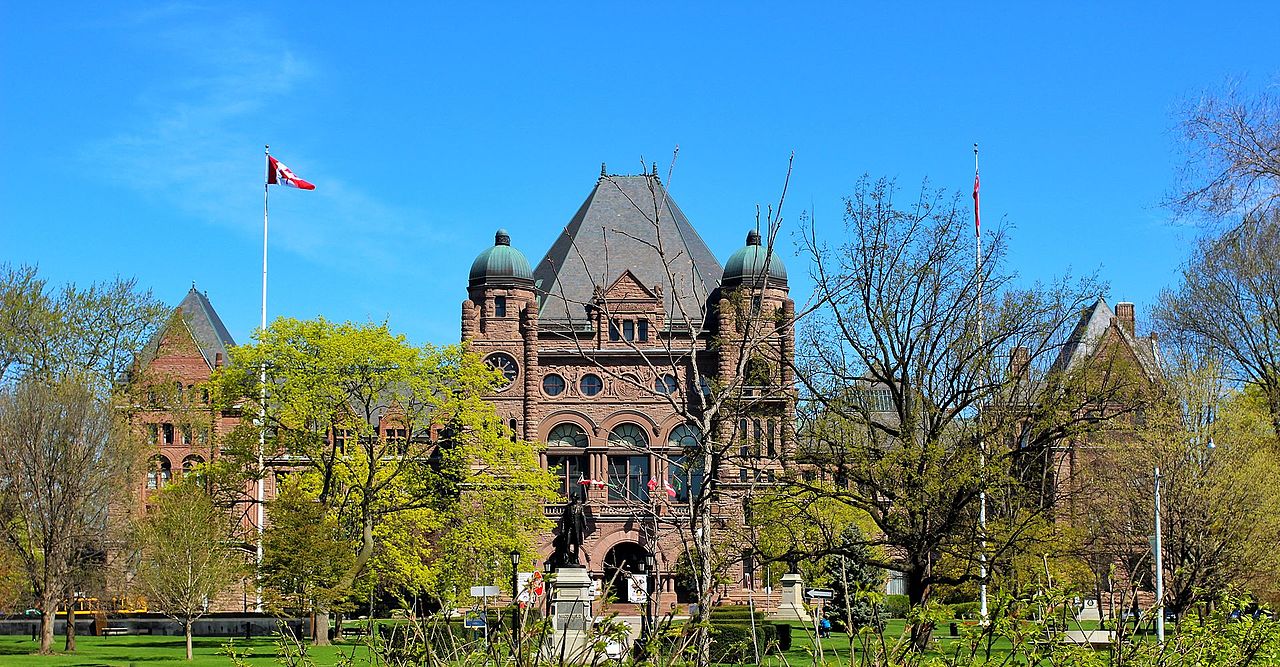Ontario’s Court of Appeal decision a sigh of relief for students as SCI only caused grief and uncertainty
On Wednesday afternoon, the Ontario Court of Appeal struck down the Ford government’s appeal of the Ontario Divisional Court’s decision to deem the Student Choice Initiative (SCI) unlawful.
Upon hearing the news, student services across the province finally got to breathe a sigh of relief as the looming threat of a successful SCI appeal vanished.
The SCI, which first came into effect in September 2019, was supposedly, according to the government, an attempt at giving students the opportunity to save on tuition by having the right to opt-out of paying for ancillary services the government deemed ‘’non-essential.”
In reality, the SCI was an attack on student groups, such as student unions and media outlets, that the Ford government blamed for propagating “crazy Marxist nonsense.” In a fundraising email, Ford had openly boasted to having “fixed that” by making student union fees optional.
At the University of Ottawa, crazy Marxist nonsense included services dedicated to supporting refugee students, the legal aid clinic, student life amenities, the ombudsperson, student media, and the Ontario Public Interest Research Group (OPIRG).
At the U of O, these services were lucky, as nearly three in four students opted-in to campus services deemed ‘non-essential.’ At other universities, campus services weren’t so lucky. For example, The Eyeopener, Ryerson University’s independent student newspaper, received only a 44.4 per cent opt-in percentage. (For comparison, the Fulcrum received a 73.86 per cent opt-in percentage.)
Although these numbers were high, the Fulcrum only found out its opt-in rate in late September for the fall semester, which caused major uncertainties when it came to budgeting. This meant that despite a relatively high opt-in percentage, the Fulcrum Publishing Society (FPS), the entity that controls the Fulcrum’s finances, had to establish a number of different budgets to use depending on the opt-in rate.
This uncertainty led to the hiring of a seven-person editorial board, the axing of the Fulcrum’s print editions, and the temporary elimination of a number of paid student jobs at the outlet. Although the roles are back and the publication now has a 17 person editorial board going into the 2021-22 publishing year, print is still dead — and that’s the SCI’s lasting legacy on the Fulcrum.
But it wasn’t just the Fulcrum that suffered. La Rotonde’s print edition had the same fate as ours, while OPIRG lost about $32,750 in funding, had to cut four paid positions, and had to postpone creating student research projects.
The University of Ottawa Students’ Union (UOSU) also took a major hit, losing about $155,000 in funding despite a 79 per cent opt-in in the fall of 2019.
So it was no surprise that both Tim Gulliver and Kalki Nagaratnam, the UOSU and the FPS’s respective presidents, sent us similar statements on Wednesday that were filled with elation.
“We’re pleased that the Ford government’s attempt to undermine student democracy, student services and student journalism has been quashed by the Ontario Court of Appeal,” wrote Gulliver. “This was a waste of Ontario taxpayer’s money, motivated solely by Doug Ford’s ideological bias against student unions.”
“Given the essential role student-oriented organizations, unions, clubs, and services have in shaping up students’ university experience, this is an incredible victory for the Fulcrum Publishing Society and all student news organizations across the province,” wrote Nagaratnam. “I am delighted by the Ontario Court of Appeal’s decision to dismiss the SCI.”
But delight aside, there does remain a slight possibility that the SCI or a new similar policy could be enacted. That is something Gulliver says students should stay cautious about.
“We are remaining cautious, however, in case the Ford government attempts to legislate this change, and we are hopeful that opposition parties in Queen’s Park will stand with students if ever the government chooses to pursue this route.”
The Ford government could attempt to take its appeal to the Supreme Court, as suggested by the Canadian Federation of Students in its statement. This route, however, may be difficult for the government, as it was soundly defeated in both the Ontario Appeal and Divisional courts.
The final ruling stated that the SCI clearly contravened the “University Acts” (each Ontario university is established by a provincial act) by infringing on universities’ autonomy from the provincial government.
“The ancillary fees framework conflicts with the legislation governing Ontario’s colleges and universities and cannot be imposed upon them by the exercise of executive authority. If the framework is to be established, the OCAATA and University Acts must be amended,” wrote Justice Grant Huscroft in his decision.
The judge notably cited the University of Ottawa Act of 1965 as a point of reference on how the SCI did this. The act states that “management, discipline and control of the University shall be free from the restrictions and control of any outside body.”
“The framework is a profound interference in university autonomy – not a mere fettering of the universities’ discretion, as the Minister submits,” wrote Justice Huscroft. “The Minister has no authority to fetter the exercise of the universities’ discretion concerning student associations.”
“The Legislature has chosen to establish the universities as autonomous entities, free from government interference in matters of internal governance. The Minister cannot exercise executive action in a manner that conflicts with the University Acts.”
With that in mind, the Supreme Court could simply deny hearing the case. And even if it accepted the case, it would most likely take years to reach a decision. As it stands, time is not on the Ford government’s side. A majority of Ontarians believe the government has butchered its response to COVID-19, and with an election in June 2022, it is most likely that a new Liberal or NDP government would simply drop the case, permanently killing the SCI.
But unless, somehow, the government can establish and pass a new policy like the SCI in the next few days, student services can breathe easy at least for this semester and thank the courts for having their backs against a government that attempted to once again abuse its powers.
So for now, and hopefully forever: bye-bye SCI.
Editorials are written by the Fulcrum’s editorial board and express the shared views and opinions of the Fulcrum’s editorial staff. To share your own views, email editor@thefulcrum.ca.





